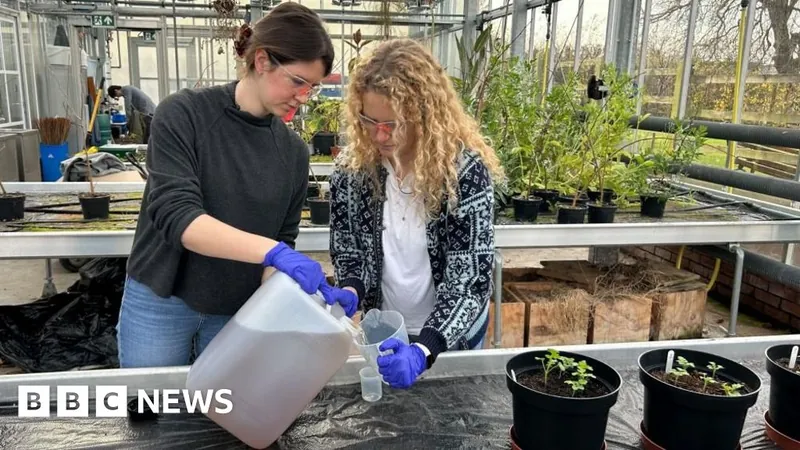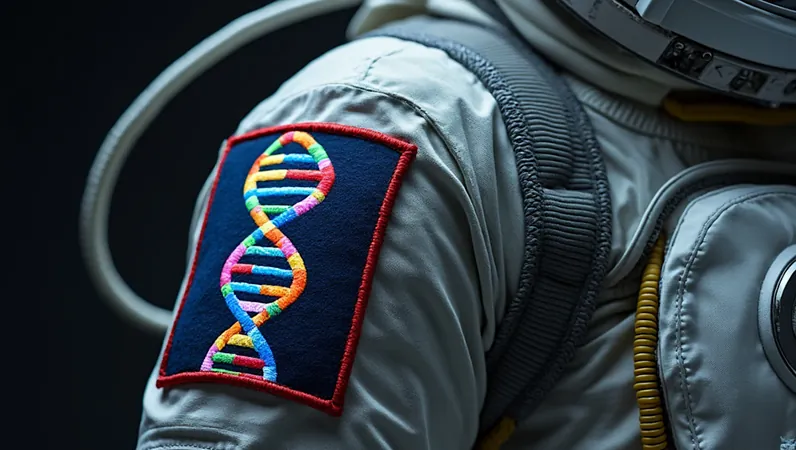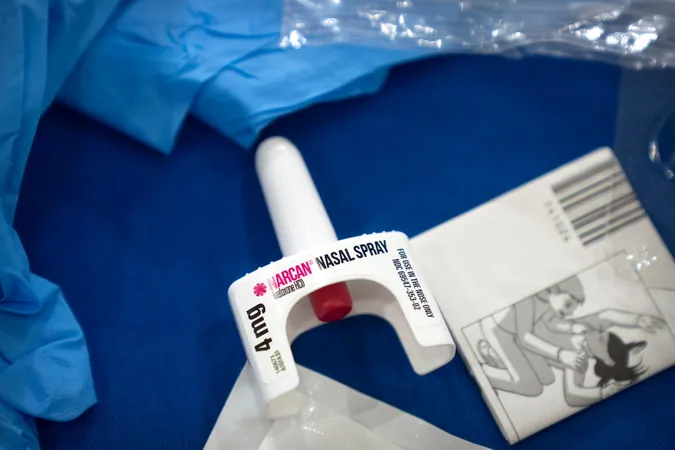
From Festival Moments to Farm Gold: Bristol Innovates with Urine-Based Fertiliser
2024-12-09
Author: Jacob
In a remarkable fusion of sustainability and innovation, a Bristol-based start-up, NPK Recovery, is transforming human urine collected from concerts into a viable plant fertiliser. This pioneering initiative is leading the charge in sustainable agricultural practices right from the vibrant festival grounds of Bristol.
The idea originated during a summer filled with concerts, where the team gathered urine with the help of Peequal, a company specializing in women's urinals. Notable events included Massive Attack's concert and the celebrated Bristol Pride festival. The approach not only highlights the potential of waste but also addresses the rising costs of traditional manufactured fertilisers, which have seen significant fluctuations due to various factors including weather changes, transport disruptions, and geopolitical tensions such as the Russian invasion of Ukraine.
Hazel McShane, a representative from Peequal, believes this innovative technology could be revolutionary for farmers striving for sustainable practices. The fertiliser developed by NPK Recovery is currently undergoing tests at the University of the West of England (UWE) with mustard plants, and in conjunction with the Royal Agricultural University in Cirencester with wheat crops. The process utilizes bacteria to break down the collected urine into essential nutrients—specifically ammonium nitrate—that plants need for growth.
Lucy Bell-Reeves from NPK Recovery noted, “With a urine-based fertiliser, you wouldn't see the price fluctuations that come with conventional options.” She elaborates on the environmental benefits of keeping this resource local, as instead of transporting waste urine over long distances, it can be refined on-site into a valuable agricultural product.
Urine-derived fertilisers are not new; they've been successfully employed in the USA and parts of Europe. This method recycles nutrients that would typically enter wastewater treatment systems, maximizing their potential and minimizing waste. “The fertiliser we're producing is from an infinite resource,” Bell-Reeves asserted, emphasizing the sustainable aspect of using human byproducts.
The team at NPK Recovery is optimistic about the upcoming agricultural trials, aiming to scale production while maintaining their commitment to environmental sustainability. Should these university tests yield positive results, they are poised to launch commercial trials as early as next year—a game-changing step in the journey towards eco-friendly farming.
As society becomes increasingly focused on sustainability, initiatives like NPK Recovery's are crucial. By turning festival remnants into fertiliser, Bristol is not just paving the way for innovative agricultural solutions but also redefining how we perceive waste in our modern world. With the growing awareness around environmental issues, could this be the future of fertiliser production? Only time—and successful trials—will tell!









 Brasil (PT)
Brasil (PT)
 Canada (EN)
Canada (EN)
 Chile (ES)
Chile (ES)
 España (ES)
España (ES)
 France (FR)
France (FR)
 Hong Kong (EN)
Hong Kong (EN)
 Italia (IT)
Italia (IT)
 日本 (JA)
日本 (JA)
 Magyarország (HU)
Magyarország (HU)
 Norge (NO)
Norge (NO)
 Polska (PL)
Polska (PL)
 Schweiz (DE)
Schweiz (DE)
 Singapore (EN)
Singapore (EN)
 Sverige (SV)
Sverige (SV)
 Suomi (FI)
Suomi (FI)
 Türkiye (TR)
Türkiye (TR)